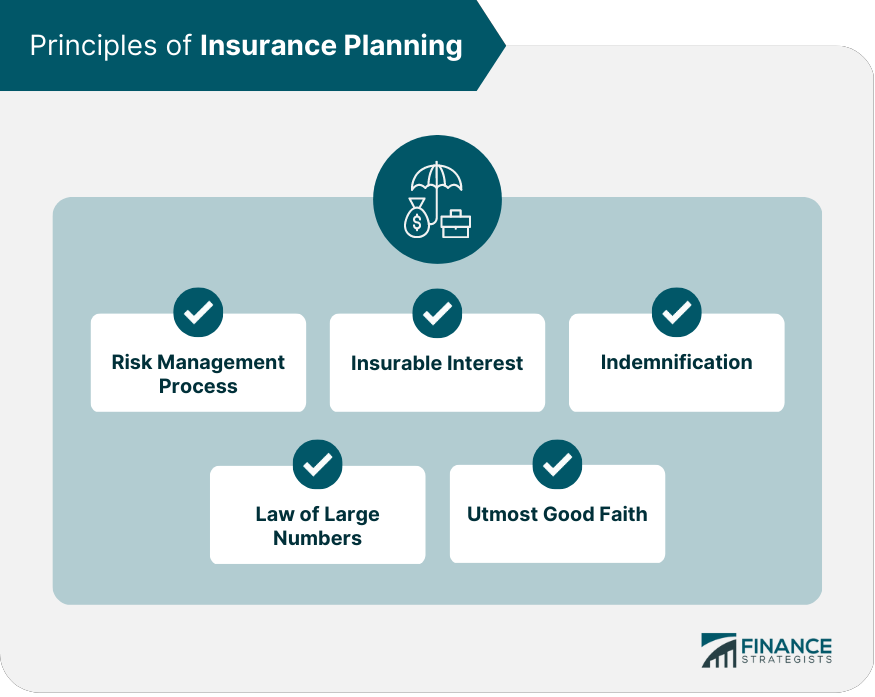Insurance Planning: A Comprehensive Guide
What is Insurance Planning?
Definition and Purpose
Insurance planning refers to the strategic approach of evaluating and selecting various insurance products to protect your financial interests and ensure the well-being of you and your loved ones. The primary purpose of insurance planning is to mitigate risks associated with unforeseen events that could lead to significant financial loss. By securing the right insurance coverage, individuals can safeguard against medical emergencies, property damage, and other unexpected circumstances.
Importance of Insurance Planning
Insurance planning is a vital component of financial security. It provides peace of mind, knowing that you have a financial safety net in place. Here are some key reasons why effective insurance planning is essential:
- Risk Management: It helps identify potential risks and mitigates their financial impact.
- Financial Security: It ensures that you and your family are financially protected in case of unforeseen events.
- Legal Compliance: Certain types of insurance, such as auto insurance, are legally required.

Types of Insurance
Understanding the various types of insurance available is crucial for effective planning. Here are some of the most common types:
Life Insurance
Life insurance provides financial support to your beneficiaries in the event of your death. There are two primary types of life insurance:
Term Life Insurance
This policy offers coverage for a specified term, usually ranging from 10 to 30 years. It is generally more affordable and provides a death benefit if the insured passes away during the term.
Whole Life Insurance
Whole life insurance provides coverage for the entire lifetime of the insured, as long as premiums are paid. It also accumulates cash value over time, which can be borrowed against or withdrawn.
Health Insurance
Health insurance covers medical expenses incurred due to illnesses or injuries. It can significantly reduce the financial burden of healthcare costs.
Property Insurance
Property insurance protects against damage to or loss of property due to incidents such as theft, fire, or natural disasters. This category includes homeowners, renters, and commercial property insurance.
Auto Insurance
Auto insurance provides coverage for vehicles in case of accidents, theft, or damage. It is mandatory in most states and typically includes liability, collision, and comprehensive coverage.
Liability Insurance
Liability insurance protects against claims resulting from injuries or damage to others. It is essential for individuals and businesses to safeguard against lawsuits.
Key Benefits of Insurance Planning
Effective insurance planning provides numerous benefits that enhance your financial stability:
Financial Security
Insurance acts as a safety net, ensuring that you and your loved ones are financially protected from unexpected events. For instance, life insurance can help cover living expenses, debts, and funeral costs for your family in case of your untimely demise.
Risk Management
By identifying potential risks and obtaining the necessary coverage, you can mitigate the financial impact of accidents or disasters. This proactive approach helps you manage uncertainties more effectively.
Peace of Mind
Knowing that you have a solid insurance plan in place offers peace of mind. You can focus on your daily activities without constantly worrying about potential financial catastrophes.
Legal Compliance
Certain types of insurance are required by law. For example, auto insurance is mandated in most jurisdictions, ensuring that you comply with legal obligations while protecting yourself from financial liability.
How to Create an Effective Insurance Plan
Creating an effective insurance plan involves several key steps:
Assess Your Needs
Begin by evaluating your current financial situation and identifying your insurance needs. Consider factors such as:
- Family Size: Larger families may require more coverage, especially for life and health insurance.
- Assets: Protect your valuable assets, including your home and investments, with appropriate property insurance.
- Income Level: Ensure adequate coverage to replace lost income in case of disability or death.
Evaluate Current Coverage
Review your existing insurance policies to understand what coverage you currently have. Are there gaps in your protection? Are you over-insured in certain areas?
Identify Gaps in Coverage
Once you assess your current policies, identify any areas where you might be underinsured. For example, if you’ve recently acquired a new home or increased your family size, you may need to adjust your life or health insurance coverage accordingly.
Research Insurance Options
With a clear understanding of your needs, it’s time to explore different insurance options available in the market. Here’s how to go about it:
Compare Policies
Research various insurance providers and compare their policies. Look for features such as coverage limits, deductibles, and premium costs. Websites like Policygenius offer comparison tools to simplify this process.
Consider Premiums and Deductibles
Evaluate the premium amounts and deductibles associated with each policy. While lower premiums may seem appealing, they often come with higher deductibles or limited coverage. Balance affordability with comprehensive coverage.
Consult with an Insurance Advisor
Consider seeking the expertise of an insurance advisor who can help you navigate the complexities of insurance planning. An advisor can provide personalized recommendations based on your financial situation and goals.

Common Mistakes to Avoid in Insurance Planning
Avoiding common pitfalls in insurance planning can save you from future financial strain:
Underestimating Coverage Needs
Many people underestimate the amount of insurance coverage they require. Assess your needs thoroughly to ensure adequate protection for your assets and loved ones.
Overlooking Policy Details
Always read the fine print of your insurance policies. Understanding the exclusions, terms, and conditions can prevent surprises when you file a claim.
Ignoring Policy Reviews
Regularly review your insurance policies to ensure they still align with your current needs. Major life events, such as marriage, the birth of a child, or purchasing a home, may necessitate changes in your coverage.
Frequently Asked Questions (FAQs)
How often should I review my insurance policies?
It’s recommended to review your insurance policies at least once a year or after significant life events, such as a job change, marriage, or the purchase of a new home.
What factors affect insurance premiums?
Several factors can influence your insurance premiums, including age, health, location, coverage amount, and claims history. Each type of insurance has its own set of criteria that insurers use to calculate premiums.
Can I change my insurance policy at any time?
Yes, you can change your insurance policy at any time, but be sure to understand any potential fees or changes in coverage before making adjustments.

Conclusion
In conclusion, effective insurance planning is a crucial aspect of securing your financial future. By understanding the various types of insurance, assessing your needs, and avoiding common mistakes, you can create a robust insurance strategy that protects you and your family. Don’t hesitate to consult with an insurance advisor to help you navigate this important process. Remember, investing time in insurance planning today can lead to a more secure tomorrow.
Advanced Strategies for Insurance Planning
While the basics of insurance planning lay the groundwork for protecting your financial future, there are advanced strategies you can implement to optimize your coverage and manage your expenses effectively.
Utilize Insurance Riders
Insurance riders are add-ons to your policy that provide additional benefits or coverage. Depending on your needs, consider the following:
- Accidental Death Benefit Rider: This rider pays out an additional benefit if you die due to an accident.
- Critical Illness Rider: This provides a lump sum payment if you’re diagnosed with a serious illness, allowing you to focus on recovery without worrying about finances.
- Waiver of Premium Rider: If you become disabled and unable to pay your premiums, this rider allows your policy to remain in force without additional payment.
Review and Adjust Your Coverage Regularly
As your life evolves, so do your insurance needs. It’s important to revisit your policies regularly to make adjustments. Consider these triggers for reviewing your coverage:
- Major Life Events: Marriage, divorce, the birth of a child, or the purchase of a home all necessitate a review of your insurance.
- Changes in Financial Situation: Increases or decreases in income can affect your coverage needs.
Take Advantage of Discounts
Many insurance providers offer discounts that can reduce your premiums significantly. Here are some common discounts to inquire about:
- Multi-policy Discount: Bundling your insurance policies, such as home and auto, can lead to savings.
- Good Driver Discount: Maintaining a clean driving record may qualify you for discounts on auto insurance.
- Loyalty Discounts: Long-term customers may receive reduced rates for their continued business.
Leverage Health Savings Accounts (HSAs)
If you have a high-deductible health plan, consider using a Health Savings Account (HSA). This account allows you to save for medical expenses tax-free. Contributions to HSAs are tax-deductible, and funds can grow tax-deferred, providing a valuable resource for healthcare costs.
Consider Self-Insurance for Small Risks
Self-insurance involves setting aside funds to cover minor losses rather than purchasing insurance for every possible risk. For example, if you frequently pay out of pocket for small repairs, consider increasing your deductible and using the savings on premiums to create a self-insurance fund.

Common Misconceptions About Insurance
Despite the importance of insurance planning, several misconceptions can lead to confusion. Let’s debunk some common myths:
Myth: “I Don’t Need Insurance If I’m Young and Healthy”
While youth and good health can lower your risk, unforeseen events can happen at any age. Life and health insurance are essential for protecting your financial future regardless of your current health status.
Myth: “All Insurance Policies Are the Same”
Insurance policies vary significantly based on the provider and type of coverage. It’s crucial to compare policies carefully, examining terms, coverage limits, and exclusions.
Myth: “I Can Wait Until Later to Buy Insurance”
Delaying insurance purchase can result in higher premiums later. Health conditions or age can affect your eligibility and rates, making it advantageous to secure coverage sooner rather than later.
Frequently Asked Questions (FAQs)
How do I choose the right amount of life insurance coverage?
Determining the right coverage involves assessing your financial obligations, including debts, mortgage payments, and future expenses such as education for your children. A common rule of thumb is to multiply your annual income by 10-15 times.
What should I do if I can’t afford insurance premiums?
If premiums are stretching your budget, consider increasing your deductibles, shopping around for better rates, or evaluating if you can eliminate certain coverages that may not be necessary.
How can I file a claim on my insurance policy?
To file a claim, contact your insurance provider as soon as possible after the event. Provide them with the necessary documentation, including a completed claim form and any supporting evidence, such as photos or police reports.
Conclusion
In summary, insurance planning is an integral part of your overall financial strategy. By understanding the different types of insurance, utilizing advanced strategies, and being mindful of common misconceptions, you can effectively protect your financial future. Regularly reviewing your policies and adjusting your coverage based on life changes will ensure that you remain well-protected against unforeseen risks.
As you embark on your insurance journey, remember that the right coverage not only secures your assets but also provides peace of mind, allowing you to focus on what truly matters in life. Don’t hesitate to consult with an insurance professional to tailor a plan that fits your specific needs.


